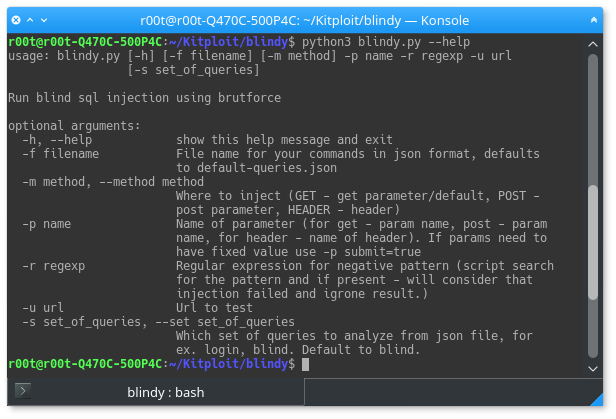

With open("mapservice.json", "wb") as ms_json:Īrcpy.JSONToFeatures_conversion("mapservice.json", ws + "mapservice.shp", ) 'spatialRel': 'esriSpatialRelIntersects',Įncode_params = (params).encode("utf-8") # Specify REST URL for service JSON to be returned Params = ĭata = (query=params).encode('utf-8') Click on the body section and click the raw radio button. In the key column enter Content-Type and in the Value column enter application/json. First load the json data with Pandas readjson method, then it’s loaded into a Pandas DataFrame.
#JSON QUERY IN PYTHON3 HOW TO#
In this post, you will learn how to do that with Python. You can do this for URLS, files, compressed files and anything that’s in json format.
#JSON QUERY IN PYTHON3 DOWNLOAD#
In some cases, users enable the Feature Access function on map services to allow easy download of data. To use this feature, we import the json package in Python script. Python supports JSON through a built-in package called json. It means that a script (executable) file which is made of text in a programming language, is used to store and transfer the data. Use the json.How To: Extract data from a map service using Python Summary The full-form of JSON is JavaScript Object Notation.Json_object = json.loads(employee_string) To use this feature, we import the JSON package in Python script. Python supports JSON through a built-in package called JSON. If you have JSON string data in your program like so: #include json libraryĮmployee_string = '' It means that a script (executable) file which is made of text in a programming language, is used to store and transfer the data. At the top you would add the following line: import json This comes built-in to Python and is part of the standard library. To use JSON with Python, you'll first need to include the JSON module at the top of your Python file. It defines the first name and last name of an employeeĪDVERTISEMENT How to work with JSON data in Python Include the JSON module for Python this created an 'employee' object that has 2 records. In that case, arrays are contained inside square brackets: [ You can also create arrays, an ordered list of values, with JSON. The example above showed an object, a collection of multiple key-value pairs. Finally, we pass in the Python dictionary, which will be serialized to JSON. We use Path.rootpath (), as this is a new object. The first argument, person:1 is the name of the key that will reference the JSON. This library is available for Python, but also for many other programming languages, meaning that if you master the JMESPath query language, you can use it in many places.

There can be more than one key-value pair and each one is separated by a comma: "first_name": "Katie", "last_name": "Rodgers" And finally, we store the object in Redis using the json ().set () method. JMESPath in Python allows you to obtain the data you need from a JSON document or dictionary easily. In JSON, data is written in key-value pairs, like so: "first_name": "Katie"ĭata is enclosed in double quotation marks and the key-value pair is separated by a colon. This is compared to the complicated and less compact XML, which was the format of choice years ago. It's a much more solid format to use during the request-response cycle web applications use when connecting over a network. JSON is mostly used for sending and receiving data between a server and a client, where the client is a webpage or web application.


 0 kommentar(er)
0 kommentar(er)
